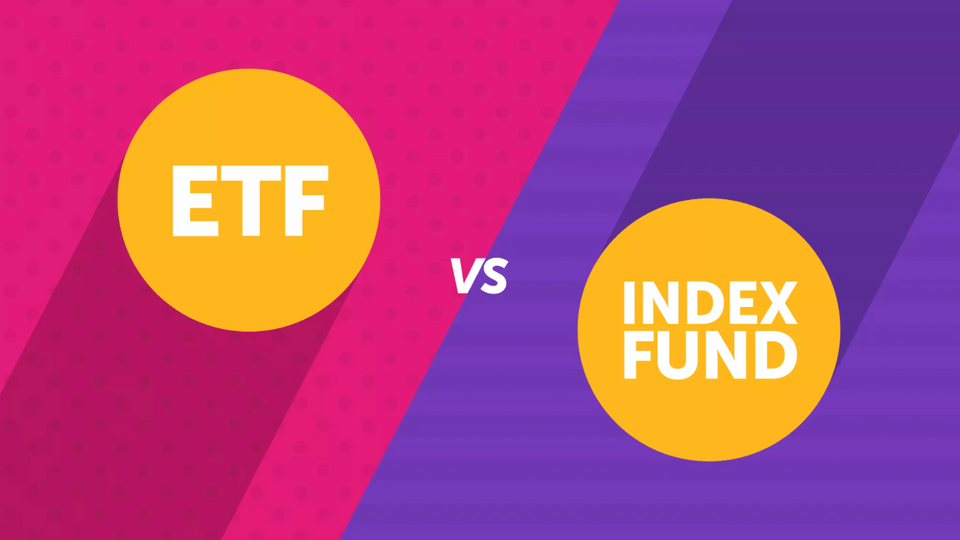In the past 5 years or so, retail investing has witnessed a steady shift, towards passive investing options. Effortless, growth-oriented and suitable for investors who don’t have the time to keep a constant tab on their investments, passive investing avenues like ETFs and Index funds have grown in demand. Passive investing is a great way to grow your money long term, but if you’re on the fence about whether index funds or ETFs are the better option, then here’s what you should keep in mind.
What are Index funds?
Index funds are a type of open-ended mutual funds, An index fund is a mutual fund that aims to track an index like Nifty 50 or Sensex. As an index fund investor, you are along for the index's ride. When it's up, your fund is up; when it's down, your fund is down. Index funds track popular indices such as NIFTY 50 or SENSEX 100 trade according to them. But that does not mean that options in passive investing are restricted to only the broader indices. For instance, there are ETFs and Index Funds on various themes like gold, commodities, banks, healthcare, etc. It is also possible to track a set of low-volatility stocks, value stocks, international funds, and so on by investing in ETFs and Index Funds.
One major advantage of this is that investors get to invest in riskier stocks in the market, but at a much more mitigated and lower risk level, since the index fund mimics the benchmark, irrespective of market conditions.
Thus in the long term, index funds are a reliable and lower risk option for investors to effectively grow their money and build wealth. As the Indian economy grows over time, so do its markets and thus so do the index funds that follow them.
The key attributes of index funds are:
1. Index funds track a benchmark index like Sensex or Nifty and are managed by fund managers. This is why they have higher expense ratios than ETFs
2. Because they involve fund managers, index funds have a higher margin of tracking errors than ETFs, since discrepancies can arise between holding adjustments and the tracking index
3. Index funds offer dividend and growth options
4. Index funds can be periodically invested in via SIPs
What are ETFs?
An exchange traded fund (ETF) are traded like stocks and can be also called a basket of securities that trade on the stock market. Like index mutual funds, ETFs are passively managed, so investors participate in all the movements of the underlying index.
The key attributes of ETFs are:
1.ETFs track indices through mimicking the index automatically and thus require minimal human intervention. They have a lower expense ratio than Index funds for this reason.
2. Demat or trading account is a necessity if you wish to buy or sell
ETFs as they are traded like shares on the stock market.
3. Since they require a Demat account, maintenance and brokerage charges are applied on ETF transactions, along with expense ratio.
4. ETFs also offer dividend options, which can be manually re-invested.
5. You do not have the option of investing through SIPs in ETFs
6. ETFs offer limited liquidity but do not depend on end of day values, they can be bought or sold at their going rate and be traded in during market hours
Index fund or ETF? Which one is right for you?
1. Tracking Error- Before picking either an index fund or an ETF always consider a fund with minimum tracking error. The tracking error is the divergence of an index fund from the index it is seeking to replicate.
2. Cost- Then you may want to look into expense ratios and fees, while most of the ETFs charge about 0.1-0.5%, index funds have expenses of about 0.75-1.5%, which is significantly higher.
3. Demat- Investing in ETFs on the other hand, requires a demat account and brokerage account costs can add to the total cost of ownership, along with its expense ratio.
4. Automated investing- Another major thing to consider is SIPs, investors can invest in index funds through SIPs but cannot do so with ETFs. With ETFs you cannot do automatic deductions, and a manual purchase is required.
5. Flexibility in trading- Since index funds are still managed by fund managers they don’t offer as much flexibility as ETFs do. If you want to enjoy complete liberty then ETFs might be a better choice.
6. If picking between the two is getting confusing, then there’s also Stack! We help create a globally-diversified portfolio for you, which includes passive assets, so that you don’t have to hunt for your right pick!


